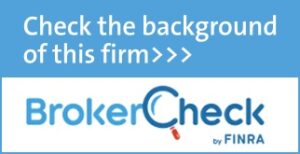
Protect Yourself From Tax Identity Theft as You Approach Retirement
Tax identity theft is a serious type of fraud that affects individuals of all ages and stages of life. To steal a person’s tax identity, a scammer uses that person’s Social Security number and other personal and financial information to fraudulently file a tax return and claim a refund they’re not entitled to. Scammers often report little to no income and many deductions to get the largest refund possible.
What’s worse, the victim may not find out they’ve been defrauded until they attempt to file their actual return, only for it to be flagged and rejected—since the IRS already has a copy of the false tax return on file.
So, what do you do to prevent your tax identity from being stolen? Here are a few of the most common tax identity theft schemes and ways to mitigate them as you begin to approach retirement.
What Tax Identity Theft Schemes Are Most Common?
Here are common theft schemes to watch out for.
Phishing Scams
Scammers send emails or messages that appear to be from the IRS or tax preparation software providers. These messages ask for personal and financial information, often under the guise of a false need to verify information to prevent fraud. Never click on suspicious links or provide personal information via email or text to avoid falling victim to a phishing scam. The IRS does not initiate contact through email or social media.
Stolen Social Security Numbers
Thieves may use stolen Social Security Numbers to file fraudulent tax returns and claim refunds. To avoid this, safeguard your Social Security Number and other personal information. Don’t carry your Social Security card in your wallet. Only provide this number when absolutely necessary. Be sure to shred all documents containing sensitive data.
Impersonation Scams
Scammers may call or email, pretending to be IRS agents or tax professionals, and demand immediate payment for supposed tax debts. The IRS typically communicates by mail first, not by phone or email. Always be cautious of any unsolicited communication regarding your taxes.
How to Defend Against Tax Identity Theft
Here are some steps to take to manage risk.
Guard Personal Information
Safeguard your Social Security Number, financial account information, and other sensitive data. Only provide this information to entities you trust. Never share it online or over the phone unless you initiate the contact by emailing or calling the organization’s official customer service contact.
Use Strong Passwords and Two-Factor Authentication
Create strong, different passwords for each of your online tax accounts, financial institutions, and email. Do not use any password on more than one system. Always use two-factor authentication if it is available.
File Early
Filing your tax return early helps decrease the window of opportunity for scammers to file a fraudulent return in your name. If you’re due a refund, you want to file for it before a scammer does.
Monitor Your Credit
Regularly check your credit reports for any unusual activity, like new accounts you didn’t open or credit inquiries you don’t remember. Discrepancies on your credit report may be one of the first signs that your identity has been stolen.
Be Skeptical of Unsolicited Communication
If you receive an unexpected call, email, or message related to taxes, ensure it’s legitimate before taking action. Contact the IRS or relevant entity directly through their official website or phone number. If the call is really from the IRS, they’ll understand and encourage you to confirm it’s legitimate.
If you think you’ve become a victim of tax identity theft, immediately report it to the IRS, your state tax agency, and the Federal Trade Commission (FTC). They’ll help you resolve the issue. Consider identity theft insurance to help manage this risk.
Important Disclosures:
The opinions voiced in this material are for general information only and are not intended to provide specific advice or recommendations for any individual.
This article was prepared by WriterAccess.
LPL Tracking #503492-03



